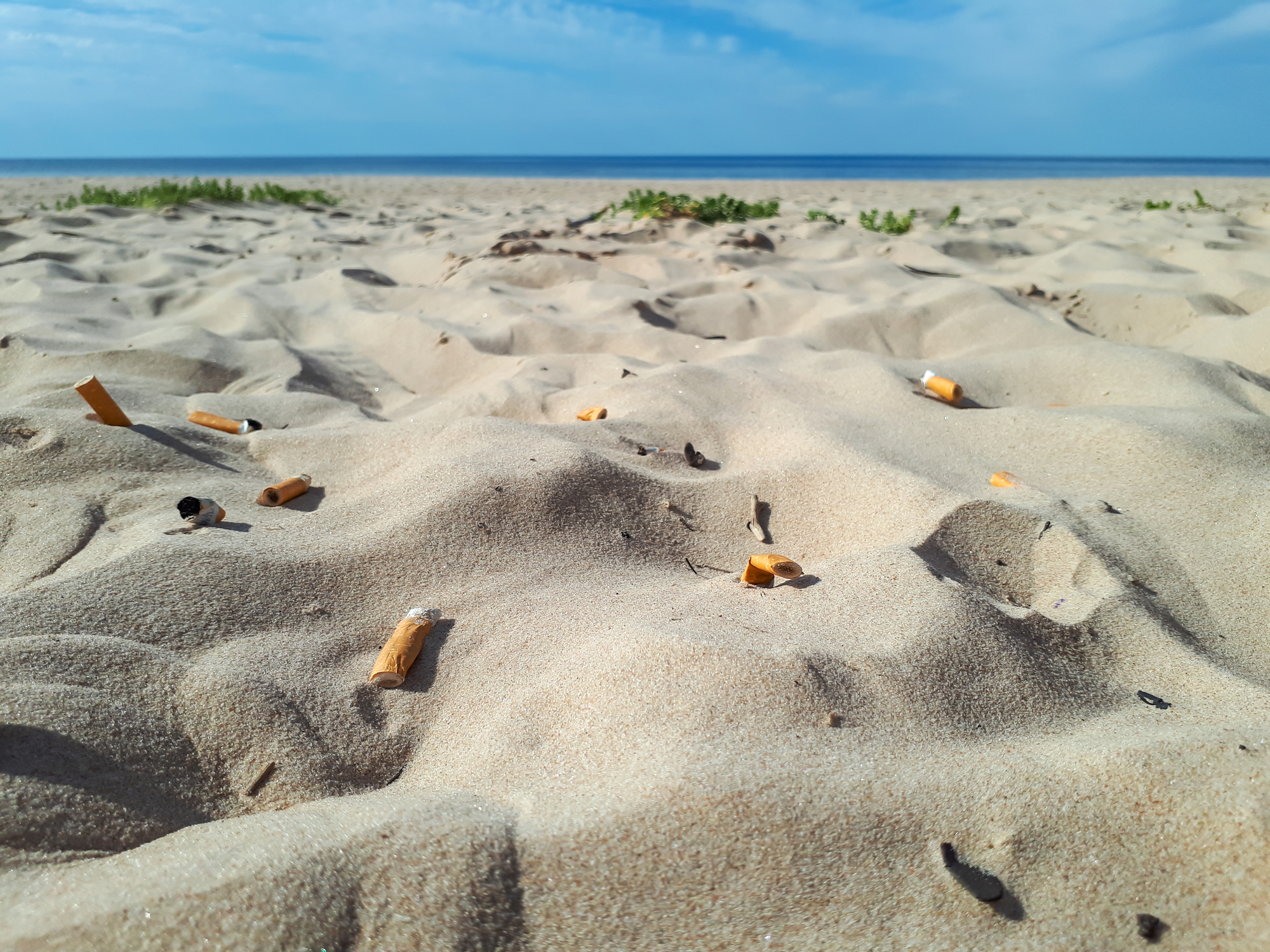
HITTING the beach this summer? Don’t throw your butts around.
Cigarette butts, that is.
This is the appeal by HealthJustice Inc. Legal Consultant Karl Marx Carumba days after the world celebrated Earth Day on April 22.
“Smoking should be prohibited in beaches as smokers tend to discard cigarette butts that are harmful to the environment,” Carumba, a lawyer, said as he emphasized the importance of reducing the environmental impact of cigarette butts, a solid waste.
According to the 2020 International Coastal Cleanup (ICC) report, cigarette butts compose the second-top item collected along beaches and waterways worldwide.
Not only that, the plastic part of cigarette butts is also one of the most prevalent forms of litter worldwide.
An estimated 766,571 metric tons of cigarette butts make their way into the environment every year, the report added. It will take up to a decade for a butt to completely degrade, it emphasized.
Meanwhile, tobacco claims eight million lives globally and trashes the environment in the process. Over 6.25 trillion cigarettes are smoked worldwide every year; 531 billion sticks in the Association of Southeast Asian region alone. And most of these are discarded into the environment.
This is in addition to the tobacco smoke that contaminates our air with various toxicants, carcinogens, and pollutants, the toxic fertilizers and pesticides that poison our land and water and the massive cutting of trees to produce cigarettes, according to HealthJustice. The damage tobacco inflicts on the environment is phenomenal, the nonprofit group added.
Toxic chemicals
ACCORDING to the Southeast Asia Tobacco Control Alliance (Seatca), nearly all cigarettes have single-use plastic filters, which provide no health benefit but mislead smokers into thinking such filters reduce health harm.
Seatca added that when discarded after use, cigarette filters leach toxic chemicals into the land and marine ecosystems and harm marine life and biodiversity.
Meanwhile, the Truth Initiative organization reported that when e-cigarette and cigarette waste aren’t disposed of properly, it makes its way into the environment where it ends up polluting water, air and land with toxic chemicals, heavy metals and residual nicotine.
Over a third of cigarette butt-litter ends up in the ocean. Every year, 340 million to 680 million kilograms of cigarette butt-litter are collected, topping the list of most common types of rubbish during coastal cleanups, according to the organization.
Hence, Carumba said HealthJustice is urging the government to provide its citizens with a clean and healthy community and protect the environment against the impact of cigarette butt-waste to fully achieve the World Health Organization (WHO) Framework Convention on Tobacco Control (FCTC).
The WHO FCTC aims to “protect present and future generations from the devastating health, social, environmental and economic consequences of tobacco consumption and exposure to tobacco smoke by providing a framework for tobacco control measures to be implemented by its Parties at the national, regional and international levels.”
“The responsible disposal of cigarette butts to mitigate the impact of cigarette litter should be strictly implemented,” Carumba said. He also lamented that smoking has a pernicious effects.
“A clean environment and a smoke-free environment translates to better health. Imagine the great benefits it will give us if people stop smoking: no cigarette butts littered around us and no illness brought about by tobacco use,” he added.
Image credits: Krisata | Dreamstime.com
